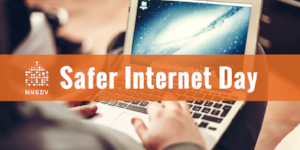NNEDV Resource Highlight: Technology Safety and Your Website
/February 6 is recognized as Safer Internet Day. We believe that survivors have the right to be safe at home, at work, on the streets, and online. Most domestic violence and sexual assault service providers have some type of online presence, whether it’s a website, social media page, or something else.
The following steps can be taken to increase the safety and privacy of people who search for resources and reach out to agencies online:
1. Add a Safety Alert to Your Website: This can remind survivors that their online activity could be monitored or viewed by someone without the survivor’s knowledge.
2. Create a Quick Escape Button: This allows survivors to be redirected to an innocuous webpage. Be mindful, this only prevents immediate over-the-shoulder monitoring (not spyware), and does not block browser history.
3. Include Information about Internet Safety: Be upfront about safety risks of communicating online with survivors via email, website, or other platforms, and transparent about what information might be retained.
4. Use a Web Form Instead of Email Addresses: Unlike direct email addresses, a web form does not leave a record of the email in the sender’s email sent folder.
5. Posting Pictures & Videos: Be sure to get consent before you post any pictures or videos online. This includes permission from staff, board members, or speakers – don’t assume that because someone works for your agency or was invited to speak, that they are willing to have their images posted online.
6. Include Accurate Information: Make sure any information that pertains specifically to your area – county, state, or region – such as laws, processes, or services are made clear. Survivors who visit your site may be from a different area and should know if the information provided is applicable to them.
7. Accessibility: Make sure your website is accessible for all viewers – including those living with disabilities or who are Deaf. You can increase accessibility by ensuring that the font you use is large enough, has strong contrast, and that the images on your website have alternative text descriptions (alt text).
Find more tips and technology safety resources in our Agency’s Use of Technology Best Practices & Policies Toolkit.
If you have additional questions about technology safety, please visit TechSafety.org or reach out to our Safety Net team: SafetyNet@NNEDV.org.



